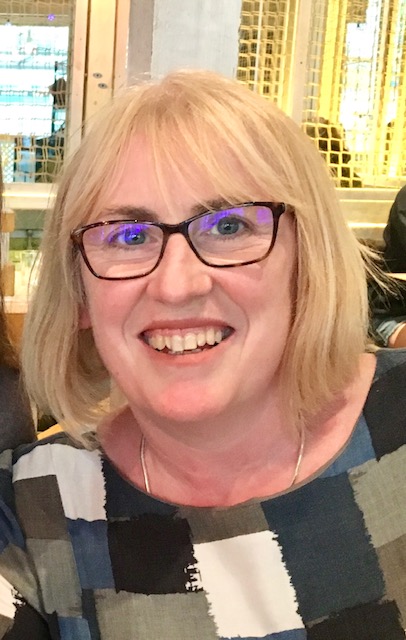A researcher at De Montfort University Leicester (DMU) is hoping to transform palliative and end-of-life care for children in the UK as part of her latest work.
Dr Helena Dunbar, Associate Professor at DMU’s Leicester School of Nursing and Midwifery, has been awarded the prestigious Winston Churchill Fellowship to explore paediatric palliative care (PPC).

Dr Helena Dunbar
Dr Dunbar, a former consultant nurse for children’s respiratory diseases at University Hospitals Leicester (UHL), will travel overseas to visit children’s hospices and hospitals, as well as universities, where she will shadow experts in the field of PPC and explore how education and practice are linked.
“As a nurse you get a snapshot of what life-limiting illness is like for families, but you do not fully understand what it is like to live 24 hours, seven days a week with a child who has a life-limiting condition,” she explained.
“There is a recognised national shortage in the workforce for children’s palliative care professionals and a lack of education, learning and development opportunities specific to the field.
“However, the number of young people who are likely to need palliative care is growing, so for me it is about educating healthcare students so that they have a better understanding of how to care and support these families.”
Awarded to just 141 people in 2020, Churchill Fellowships are subsidised by the Winston Churchill Memorial Fund. The scheme is open to all UK adults regardless of qualifications, age or background and successful applicants can use the funding to travel anywhere in the world to research a topic of their choice.
Over the course of five weeks, Dr Dunbar will travel to Canada, visiting Quebec, Ontario, Alberta and British Columbia.
“I chose Canada because it has a lot of different kinds of palliative programmes – they have built new hospices off site and dedicated hospices next to hospitals,” she said. “They also deliver a lot of outreach work, so I want to compare all of these models.
“I will also visit universities to see how they integrate palliative care into education and training programmes.”
“At the moment, due to coronavirus, the trip is on hold,” she said. “But as soon as I am able to, I will be heading to Canada to start my research.”
Dr Dunbar is incredibly passionate about improving palliative and end-of-life care for children, having completed her PhD at Rainbows Hospice for Children and Young People in the East Midlands between 2013 and 2017.
“Rainbows sponsored my PhD so for some of the time I was based at the hospice,” she explained. “My research explored how patients and their families felt being in a place that is typically perceived as a clinical environment for end-of-life care.
“I spoke to parents and children to see what they did and didn’t want and from that I created a framework for the hospice to better understand the most important characteristics to make sure families felt at home there.
“I got to know the families and hear their stories and it was such a worthwhile experience.”
RELATED NEWS
Film academic wins funding to highlight work of female directors
DMU research raises concerns about impact of Ramadan on Type 2 diabetics during COVID-19 lockdown
DMU scientist works with University of Oxford researchers in a bid to find COVID-19 cure
As a direct result of Dr Dunbar’s research, Rainbows completely revamped its reception area to make it more welcoming and developed an outreach model to build relations between staff and families outside of the hospice environment.

Rainbows transformed its reception area as a direct result of Dr Dunbar's work
“It is a heartfelt desire of mine to make a difference to children’s palliative care in the UK,” said Dr Dunbar. “When you are looking after children who have life-limiting conditions, who may die before they reach adulthood, the smallest things can make such a difference.
“I hope that through the Winston Churchill Fellowship, I will be able to develop a suite of training and online teaching to help student nurses and other health professionals understand the importance of palliative and end-of-life care for children, which they can carry forward into their professional careers and provide families with the care they need.”
Posted on Friday 22 May 2020